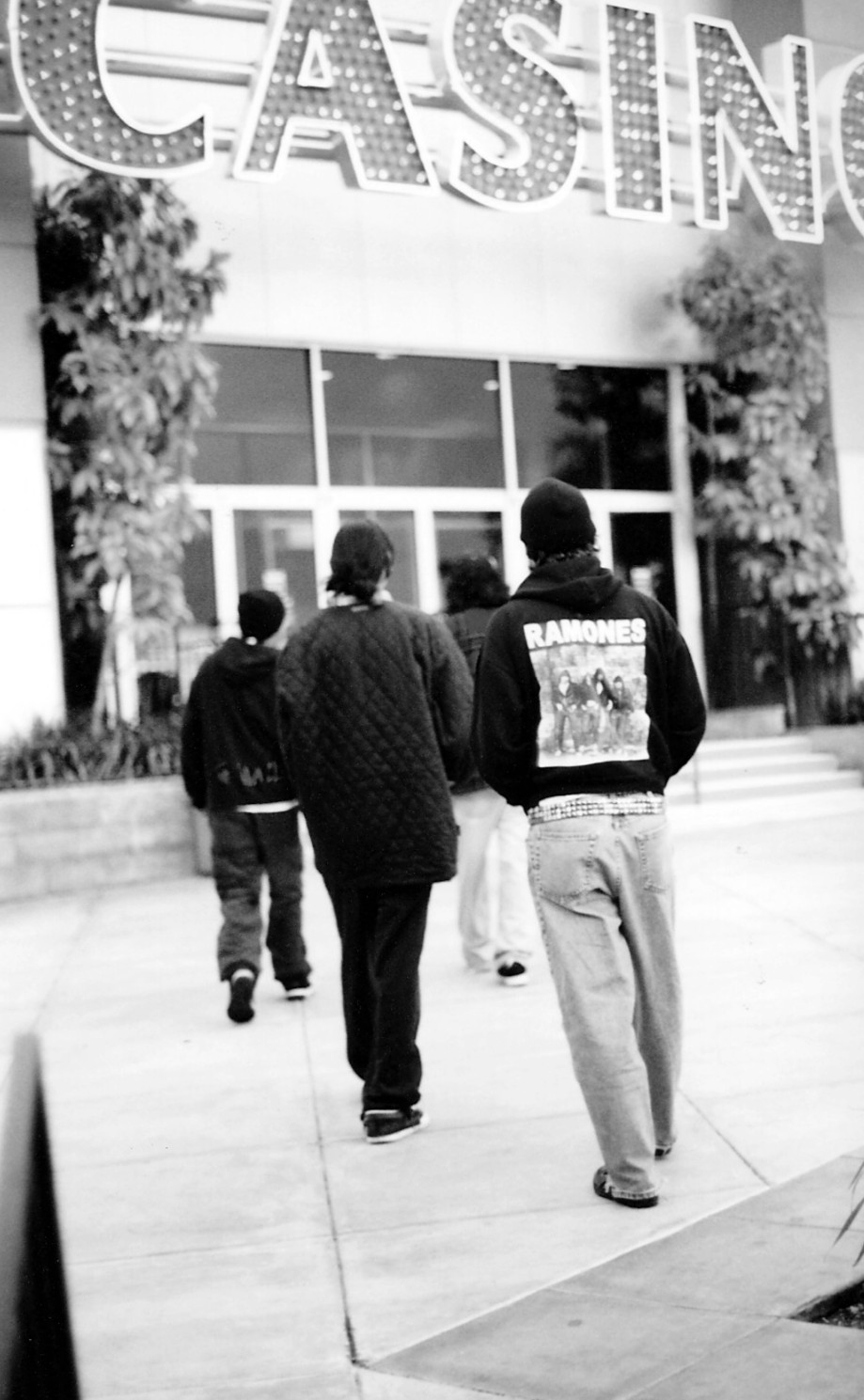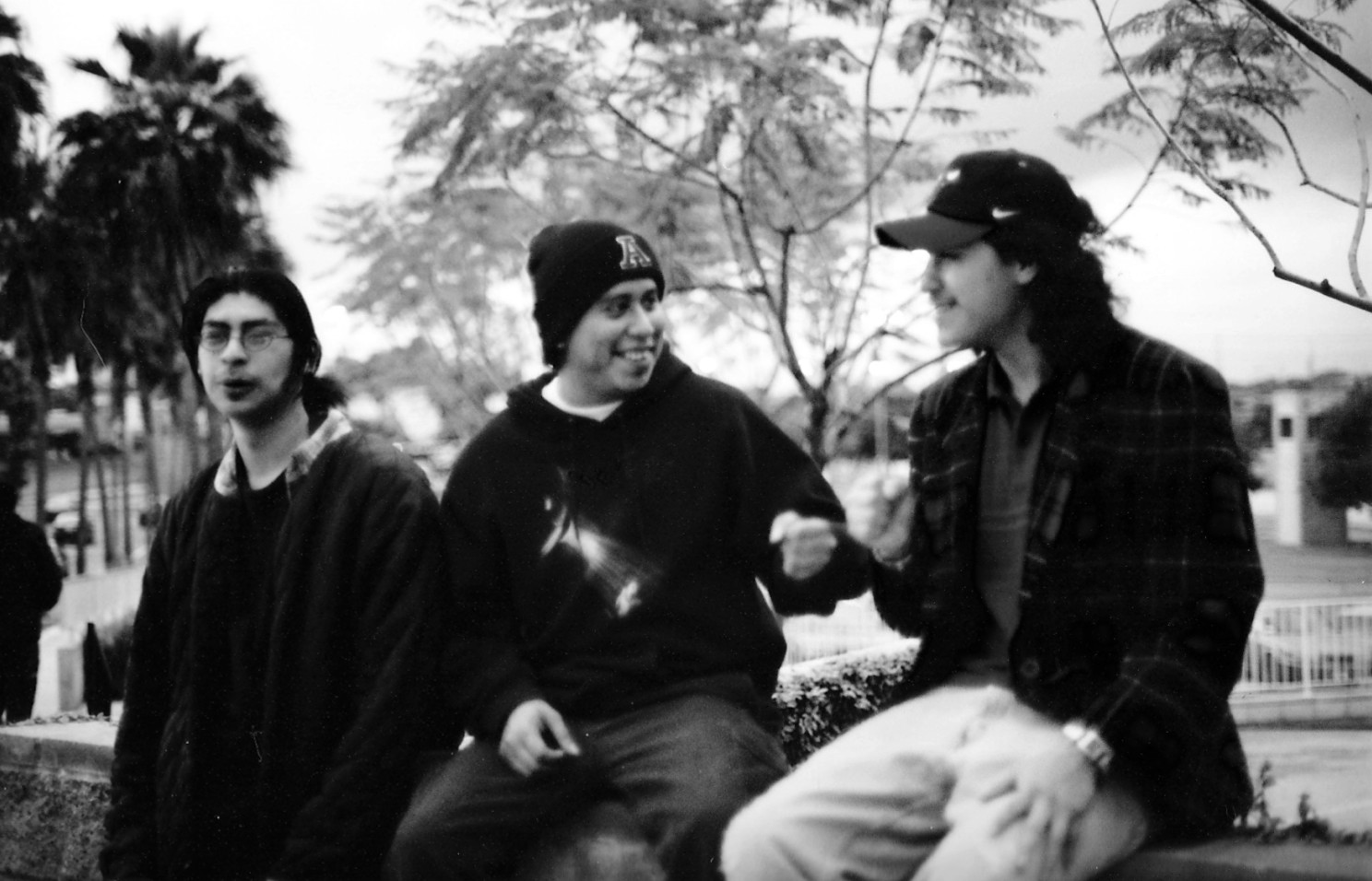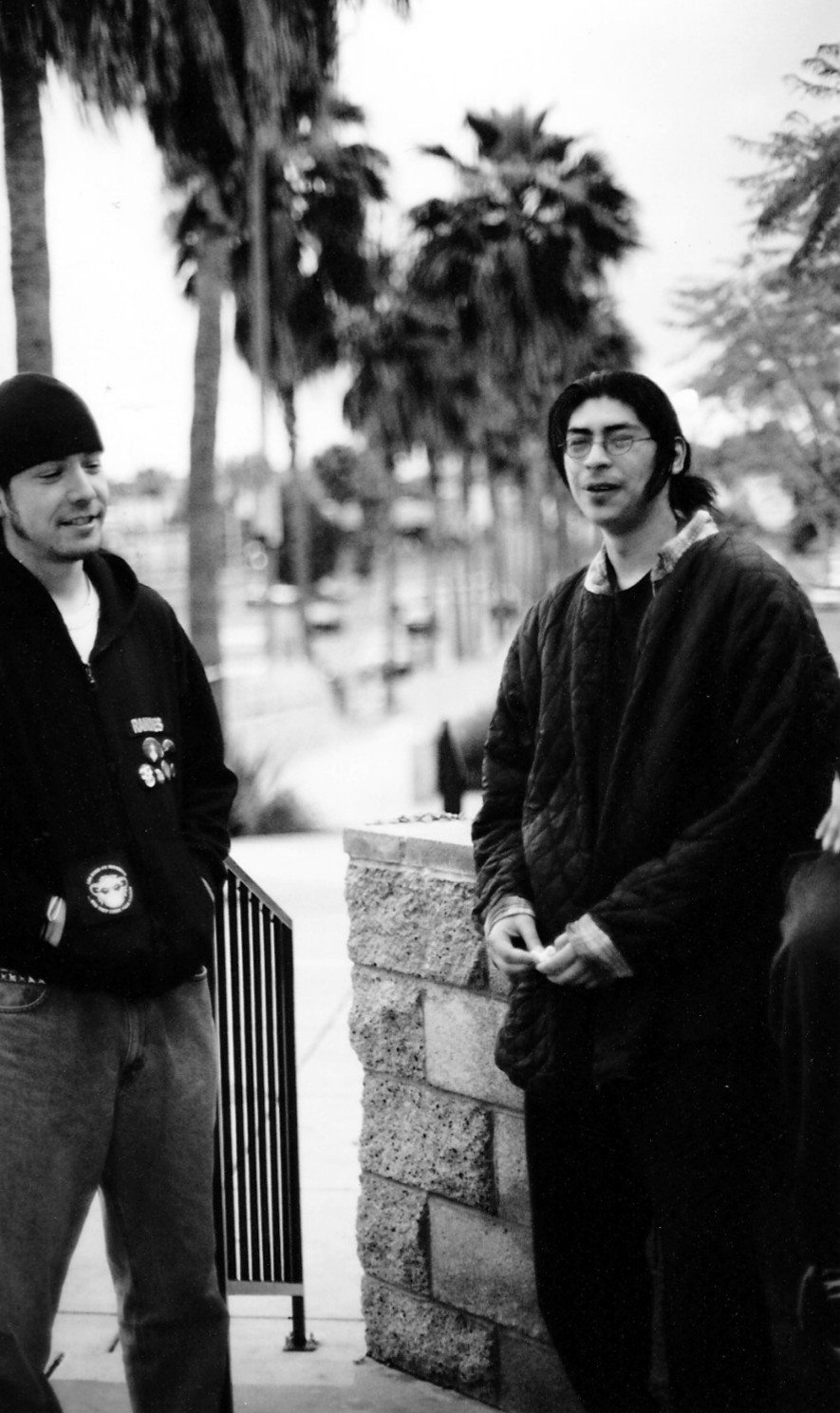ThE ART OF SOUND
Interview With Teenage Wasteland
Compton
From Issue 1.5, May/June 2005
The Crystal Casino, off the 91 freeway in Compton, is like looking at a landscape with the subtitle, “what’s wrong with this picture” scrawled above it.
The building sits on a seemingly barren expanse of land. Nothing else is around and the parking lots are less than half full on a Thursday during happy hour.
One gets the sense of being in the Midwest, rather than a Los Angeles city known in the news and movie industries for its epidemic of
gangs and clashes between the police and the people.
After one climbs the stairs to the casino’s entrance, the skyscrapers and courthouse come into plain view and the realization hits that this is Compton, and inside the casino’s bar, sits the members of Compton rock band Teenage Wasteland.
Mostly known for its rap artists, the idea of this band with a positive message seems out of place or an oxymoron.
And while most of the country knows Compton for gangster rap, according to guitarist Elyie Flores, there is a growing subculture of kids who appreciate rock and roll and punk in this city.
However, when drummer Douglas Castaneda talks about the time he got jumped for being in a band, it is evident how the rock scene is still only a growing subculture not yet a part of this city’s mainstream music scene.
Teenage Wasteland is one of the few bands in an unspoken movement to make kids more aware and increase the incentive to stay in school rather than stray into gangs or violence.
The band is working on trying to establish a music program in schools, called MAGC (Music Against Guns and Crime).
Talking to Flores about how he comes from a family of gang members, or to bassist Beto Montanez about how kids in this neighborhood sometime skip school out of fear, seems to make them more humble despite their affirmation that they are going to make it as a band.
The motivation behind their music produces a firmly rooted message that to be passionate about something, is to do it even when no one is looking.
However, in the case of this band, crowds are actually looking.
They have managed to play in a variety of places throughout Inglewood, South Central, East Los Angeles, Long Beach, Lakewood and Wilmington.
According to Douglas’s brother, Stanley Castaneda (the band’s vocalist and lyricist), the band has been averaging two shows per week. The calendar that hangs on a wooden post in the band’s garage-practice-hangout space is indicative of their packed schedule.
The big question however, is whether a band from rap-infested Compton that sings in mostly Spanish, to the rich riffs of early 90s skate punk in the vein of bands such as Pennywise, will be accepted.
When pressed with whether they thought having Spanish lyrics might be a barrier to potential music fans, they all shook their heads no.
“Even though people don’t understand it, they still end up liking it,” said Montanez of the band’s blending of the Spanish and English languages in their music.
Added Flores, “I say a lot [of people] have opened up. Sometimes the crowd is narrow-minded, but most people are open to it.”
This is probably for good reason.
This band sings about what they know, which is that music is defined as the art of sound (as taught by the band’s former middle and high school teacher Herbert Boykin).
“If you ask a lot of musicians what the definition is,” began Douglas, “they don’t even know.”
With that in mind, they have managed to attract people to their music because they are not singing about bubblegum pop subjects.
In contrast with a lot of bands out there, Stanley (who writes the lyrics) is poetic and articulate, and when Douglas talks about what it is like to play onstage, one gets the sense that music is an integral part of their lives.
“It’s about when you’re onstage,” said Douglas. “It’s like a big statement of revolution-when you see people pitting and you know they can feel the music.”
They sing about what they know and to probably fully understand that particular sincerity in their music, is to drive with them back to their garage studio and hangout: their own teenage wasteland.
Although, the guys are no longer teens, they say, their garage and practice space has become a hangout for many local kids.
“We let’em hang here instead of being shot at the park, instead of hanging at the corner,” said Stanley.
Layers of cardboard cover the walls to drown out the sounds from when the band practices.
However, the neighbors still complain sometimes. Their uncle still tells them to literally “shut up” according to Stanley who wishes they could practice more often.
There is a keyboard in one corner, a bed in another. Two loveseats sit catty corner to one another facing a television set.
There is a sign that says “Elm Street” and a Railroad Crossing sign Stanley picked up off the street after an accident occurred. There is also the gas hose from the time Stanley drove off without removing the hose from the tank.
Bathroom signs from Eagle Rock.
Then there is the guitar on the left wall. The red G Gibson Epiphone guitar. Stanley’s first guitar he accidentally left at a friend’s house and which, the friend’s sister completely demolished after she got mad at her brother.
Montanez pointed out the baseball trophies lined up on a shelf. There is also the first award Teenage Wasteland won in January at Dominguez High School’s 4th annual battle of the bands.
It is here, in Teenage Wasteland’s own “wasteland,” that another side of the members emerges.
It is the typical, boys hanging out in the garage with their friends, side to the band members.
“We’re not constantly in a shitty mood,” said Flores to contrast the fact that most of the band’s lyrics paint rather haunting images of the world through war or poverty. He also said this to glaze over the fact that the past hour and a half at the casino was spent discussing gangs, violence and Compton in general.
“We love Compton,” said Montanez.
Added Douglas, “We’re not all good; we have a ghetto side to us too.”
This band is an anomaly in a city plagued with stereotypes. Some of these stereotypes may be true, while others are not.
The picture of Compton is not completely bleak.
Likewise, the picture of this band is not to paint its members as completely about staging the next urban revolution. They’re just observant of their surroundings.
Yet, they do not use the fact that they are from Compton as a tool to justify why people should listen to them.
They just want to paint themselves as four guys flowing to the current of their own music, and there definitely, is nothing wrong with that picture.





